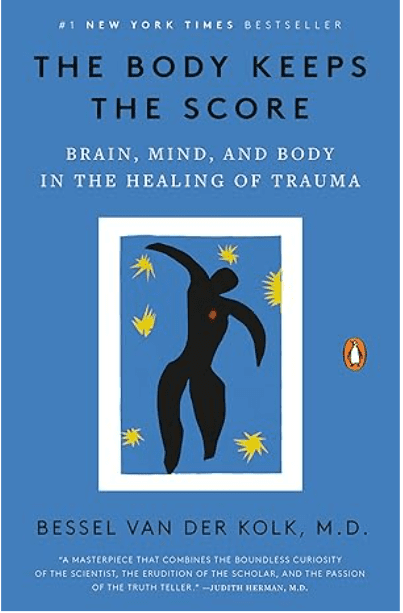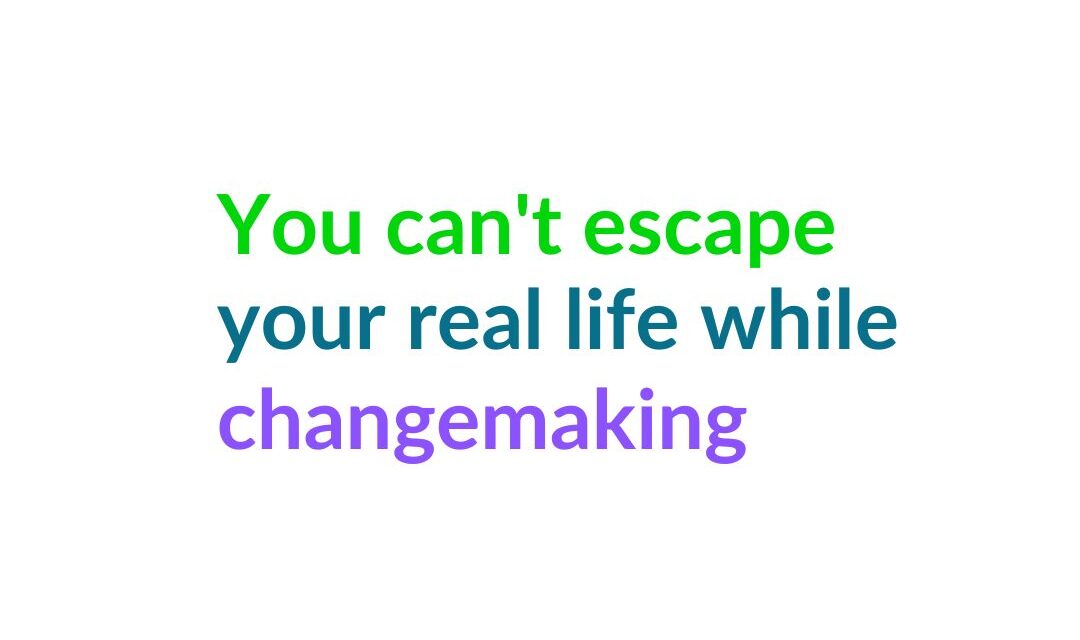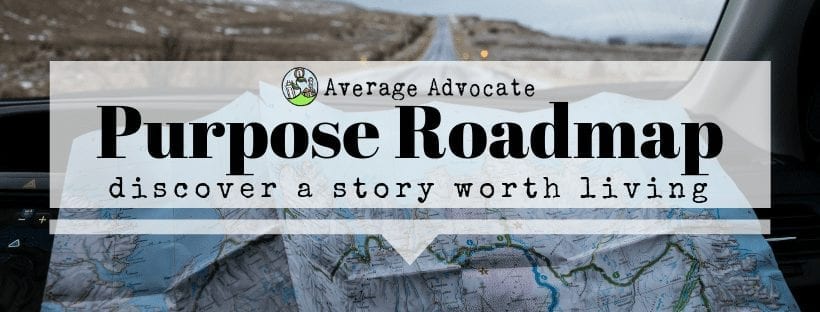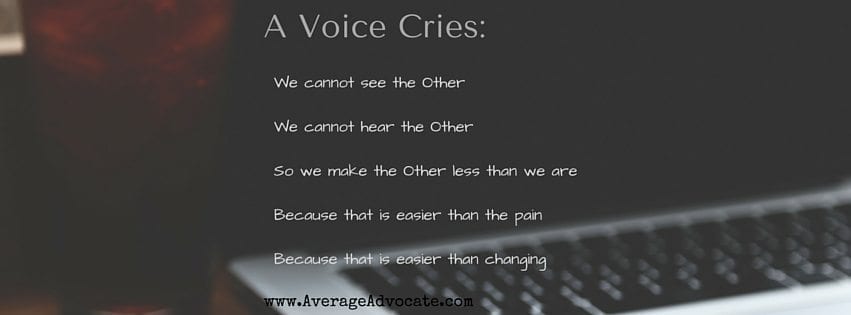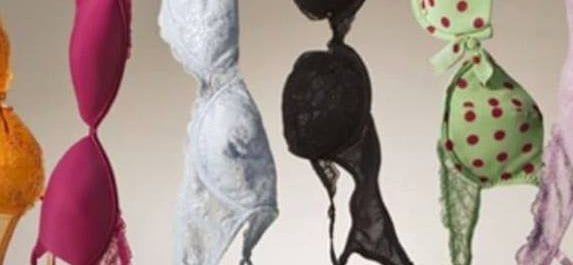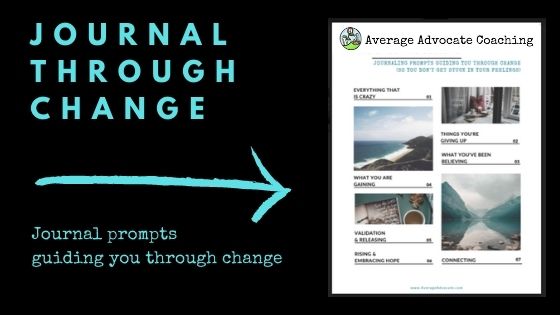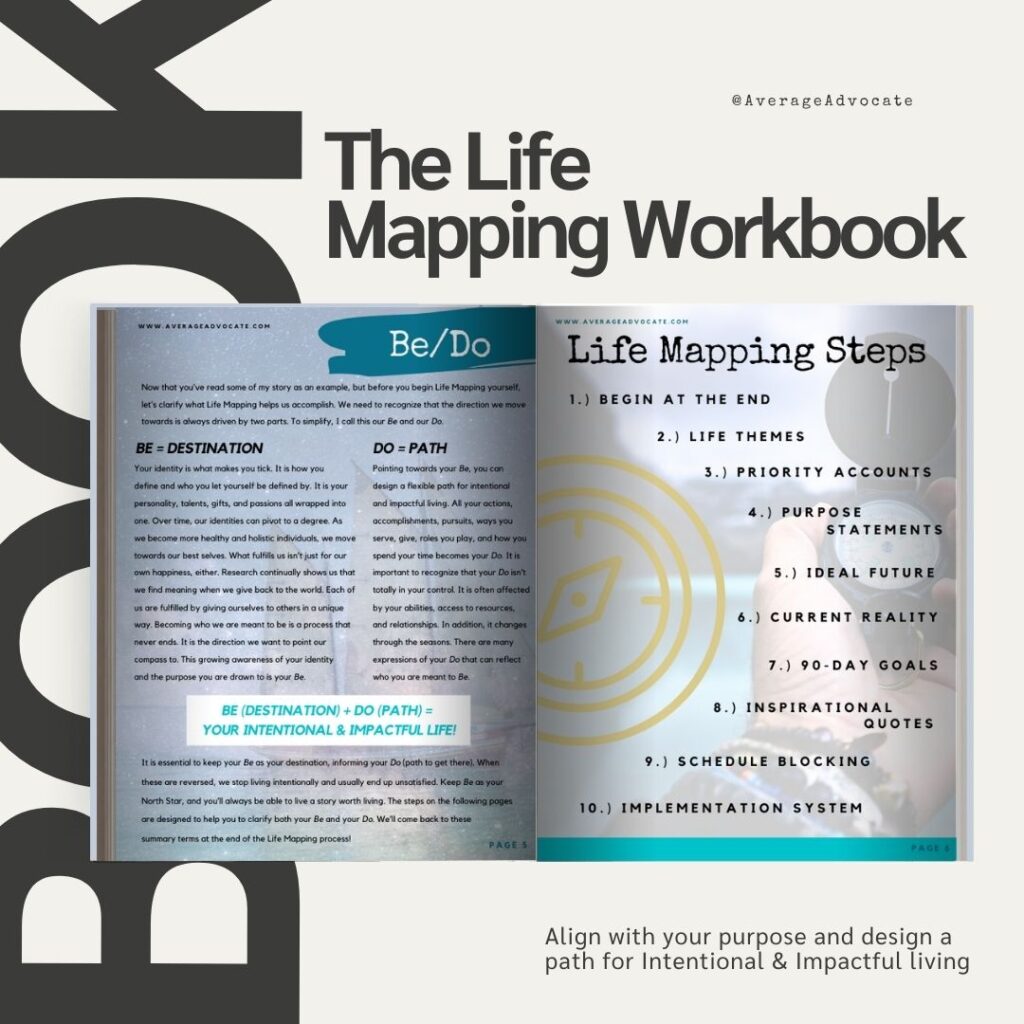The truth is, we can’t escape real life while we are changemaking. We need to keep ourselves centered on four elements in order to accept ourselves in the context we are in.
This week has been a hard one, holding the anniversaries of many traumatic things that have happened over the last few years with my body and mind. My youngest son’s second birthday is an epicenter of these trauma anniversaries. Even when I tell my mind I am not in danger anymore, PTSD has a mind of itself. My body feels tight and panicky. My brain is flooded with intrusive thoughts and everything reminds me of all that happened. Sleep is illusive and my body keeps the score.
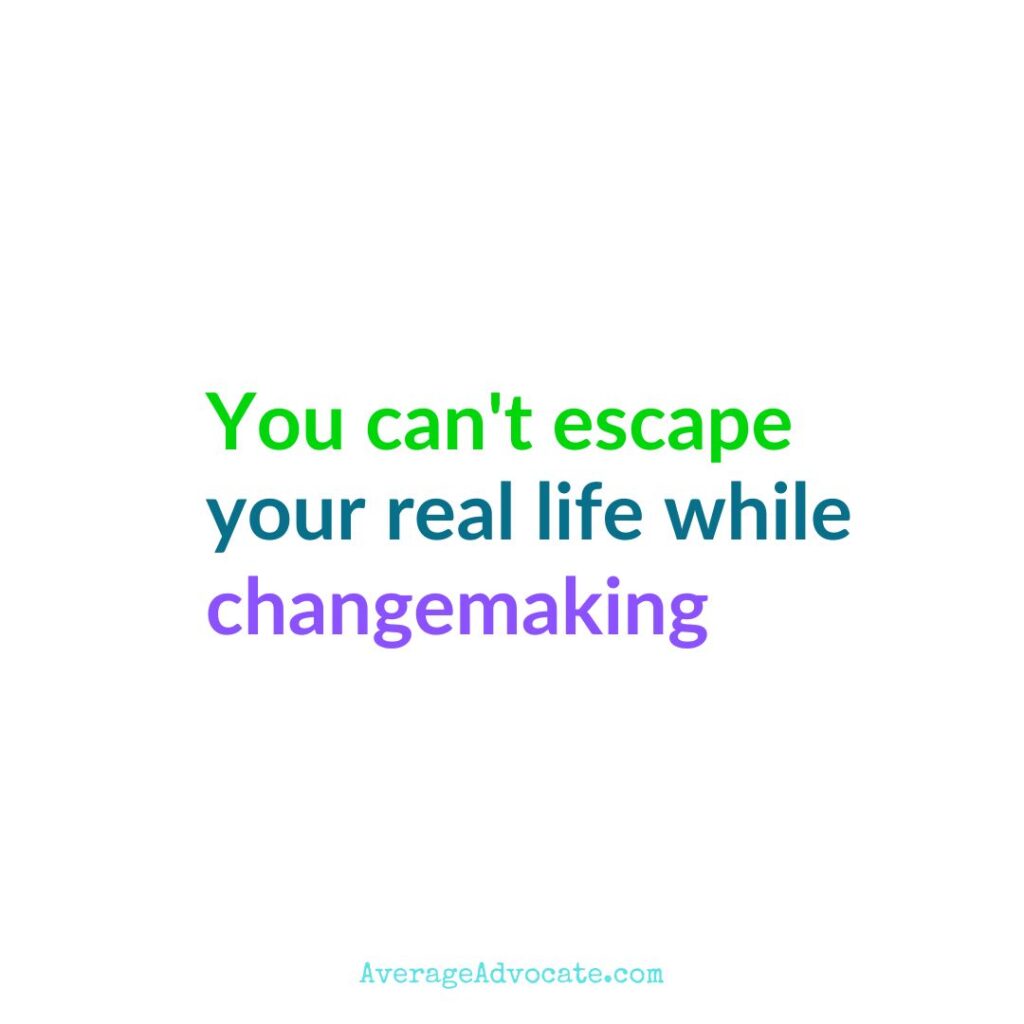
My gratitude that we are alive, that we made it past the worst, is gradually changing from shock to hope. I’m slowly beginning to believe there will be more to life than muddling through healing. I am rising up.
“Rising up” is a trope I often refer to here at Average Advocate. I talk about rising up to engage in social issues. I talk about rising up into your purpose, a calling, a best fit. I merge those two in the Five Phases of Rising Up, stages every changemaker goes through.
But rising also happens in us personally when we intentionally take the time to heal while also not getting entirely stuck in the mess of real life.
Four Elements To Be Aware Of Concerning Real Life and Changemaking
1. All That What We Can Influence
The way we engage in social issues or even our purpose/calling is directly related to how we are surviving and functioning in real time. I’m always the first to say that changemakers often try to do it all and burnout in the process. Maybe it is because we are notorious for saviorism and carrying it all while we see so few responding to social issues. Years ago, I rebuilt Average Advocate after burning out changemaking. It is why I moved into coaching and teaching changemakers how to avoid burnout. It turns out we actually have a lot of influence with how we do what we do to be who we are meant to be.
2. What We Can’t Control
Although I had figured out a method (Life Mapping) to be intentional with my life and changemaking, I found myself in a really hard season. We can’t prevent everything. I didn’t really get how little we can control life, even if we can choose our response to it. I hadn’t experienced so much heaviness and loss in relationships, my body, and mind before. Even if I talk about injustice and oppression, my privilege (which I am grateful for) kept me from comprehending how terrible life can be. It can throw trauma our way and we have to learn to live with it or through it. Even if we are doing everything good to be sustainable Changemakers, we might find ourselves having to drastically reshuffle how we engage in external change so we can care for ourselves.
3. Changemaking Isn’t an Either/Or
But reshuffling doesn’t mean quitting everything or not caring! Even when I was at my worst, I’d still be jotting article ideas on my phone in a hospital bed (even in delirium) or talking with a nurse about some social issue. Yes, I could barely give anything and had to step out of almost everything. But my identity was still a changemaker–I had already been shaped by how I give my uniqueness to the world. (This is part of Phase Four and Five of Rising Up–don’t forget to grab your free guide!)
Doing good doesn’t happen in a bubble. It happens in the context of our very real lives. This means attending to the way our bodies are processing grief, trauma, change and other struggles. It means prioritizing responsibilities to keep ourselves and our families at least surviving. We must become aware of our health, our strength/energy, our mental health, and our spiritual well-being. We aren’t in an either/or binary or either doing great and pushing in to make a difference, or doing poorly and can’t give of ourselves. Instead, we reevaluate each season to know how much to give of ourselves based on how full and overflowing our cup is.
(Personally, I believe something good happens in me when I receive God’s love in all these ways, and I love God with all these parts back.)
4. Authenticity Helps Us as Changemakers
I’m not sure where this either/or binary comes from, Actually, maybe I do know. Social impact is like everything else we present to the world via our images of success! For our work to be lauded, accepted as valid, or for our nonprofit to keep getting donations, we have to prove what we do matters. We have to show and present ourselves through accomplishments that are either beautiful or big (or both). And we don’t talk about everything else, segregating it.
Our vibe might be pictures on the beach (like sometimes mine is). Our feed might show funny reels, teaching slides, or mic-drop quotes. But how often are they authentic to every part of us? Not just the good stuff? Not just the niche we are in? I started Authentically Elisa last year because I didn’t feel like I could show all of me and what I was going through to Average Advocate and serve my audience. And although that choice makes sense, in some ways it is sad that I have to segregate myself, keeping most of my mental health, physical health, and faith writing at a totally different blog.
But in this post I’m not. I want us to remember that we aren’t able to separate ourselves from real life. Practicing authenticity in the context we are in, while being aware of what we influence and what we don’t are vital elements to hold on to.
We Need More of This In Changemaking!
Can we pause for a moment and be willing to accept ourselves where we are?
Even as we try to make the world better? I’ll go first:
>My capacity has been severely limited.
>My mental health has been crazy with PTSD.
>My physical body has been in and out of beds, doctors, and hospitals.
>My relationships and circles have been impacted by so many other challenges, traumas, and hurts.
>Each week I process grief. It can be discouraging. I am aware that I am not totally sure how I’ll function tomorrow.
And ALSO, even in all of this, I am so grateful for the healing that has transpired in my life. I am grateful hope is rising on the horizon.
I hold all of this in tandem, taking on step at a time. We all hold each part of our real lives–the good and the bad–in tandem. It is okay if our changemaking reflects this honesty. We don’t have to pretend we have it together.
We live with grace. We have our own experiences in one hand and what we hope to be part of changing the world in, in the other hand. We don’t have to live in a binary of either/or. We let go of controlling the outcomes. We attend to our needs and family’s concerns, while also caring about our purpose, creating external change. Sometimes we give more to one part than the other. This is okay.
And even so, this is how we keep rise up.
More On Trauma in our Real Lives as Changemakers:
- Reducing Trauma in Changemaking
- HOW STORIES HEAL US AND PREVENT BURNOUT FOR WORLD CHANGERS
- ACE’S IN TRAUMA INFORMED CARE
- AWARENESS OF TRAUMA WITHIN THE CHURCH TO OVERCOME IT
The Body Keeps the Score
Speaking of real life, you might be interested in this book, The Body Keeps the Score. It talks about how our brains remember trauma. I actually only skimmed it (a few years back), but it did help me become more trauma-informed in my social impact work, which was especially helpful when leading anti-human trafficking organizations and having someone with severe trauma live with me (this helped too!). Then, after going through a lot of new traumas and being diagnosed with PTSD, I was able to understand a lot better why my body freaks out how it does. Thankfully, my mind is starting to learn how to manage this and why this week hasn’t been as hard as they year before (and so is my Spirit, if you want to read about that here).
Or you can look up YouTube videos on complex trauma or how we remember trauma. Either way, understanding trauma can be really helpful for us, for almost all of us have lived through little, if not big traumas.
Get a copy here.
